Simon Reynolds - Interview Part 1
by Mark Rowland
published: 19 / 4 / 2009
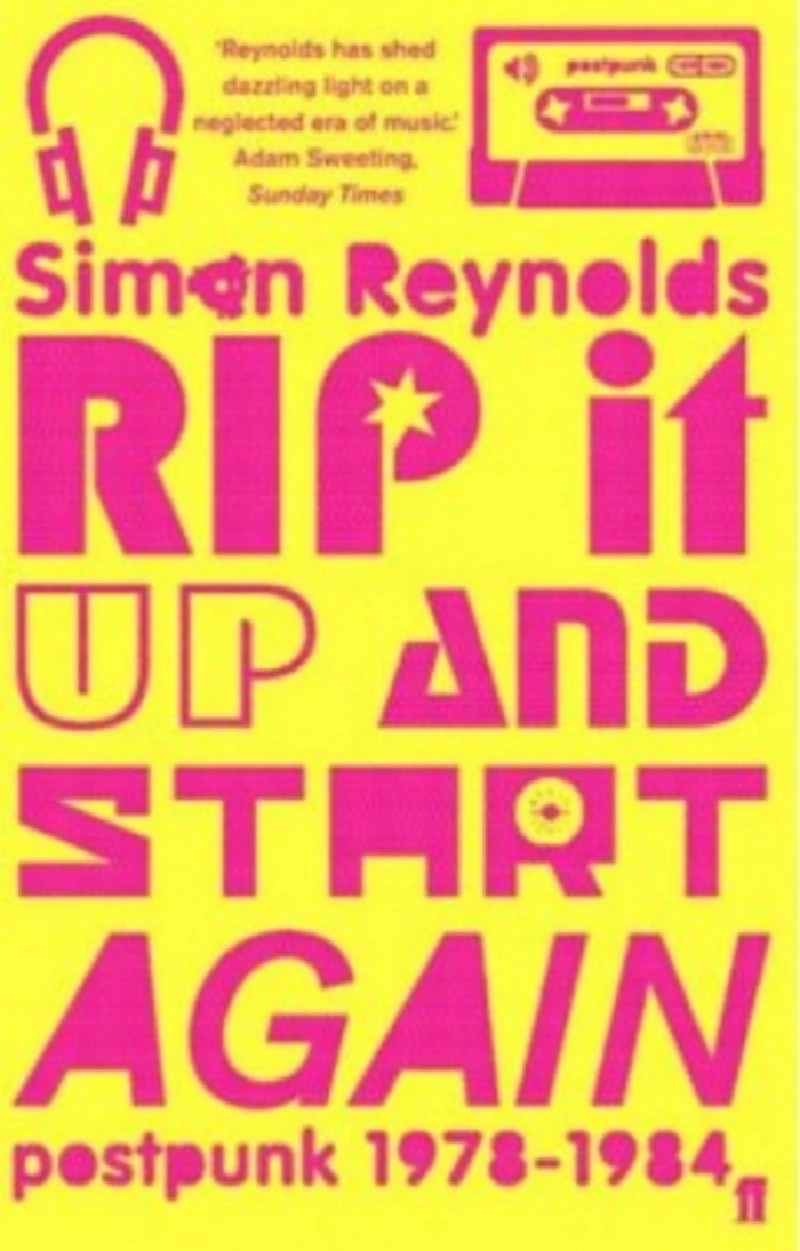
intro
In the first part of a two part interview, both of which we are running consecutively, music journalist Simon Reynolds chats to Mark Rowland about his critically acclaimed books on post punk, 'Rip It Up and Start Again' and 'Totally Wired'
The post-punk revival of the last few years has produced artists both interesting and bland over its course and, as recession took hold worldwide, has begun to fade in the public interest. The new era to be pillaged for sounds is the very early eighties, when synth pop ruled the waves. Or to put it another way, about halfway through Simon Reynolds’ acclaimed book, 'Rip It Up and Start Again'. The timing of 'Rip It Up', which was first published in 2005, was perfect, capturing not only the public’s renewed interest in the sound of post-punk, but also the desire to revisit and reassess the recent history of pop culture that seems to have penetrated public consciousness. Reynolds has always been a writer that looks at his subjects in a fair amount of depth, from his days working on 'Melody Maker' to his books such as Energy Flash, which is about the progression of dance music. It is his work on post-punk, however, that has raised his stock in recent years, with 'Rip It Up' capturing the feel and attitudes of the time with the right mix of accuracy, good storytelling and enthusiasm. His most recent book, 'Totally Wired', is a compilation of interviews with many of the key figures in post-punk, the source material for much of 'Rip It Up and Start Again'. As well as musicians such as David Byrne, Edwyn Collins and Ari Up, Reynolds included conversations with those who promoted and supported it at the time, such as John Peel. Reynolds also give more of his own opinions about the era’s key figures and the role the music played in a social and cultural sense. It is this interest in the social and cultural aspects of music that gives Reynolds his distinctive voice in the world of music journalism. His desire to get under the skin of a musical movement and find out what makes them tick makes for a riveting read. Reynolds spoke to Pennyblackmusic from his current base in New York about his recent books, about his approach to writing in general, and his views on the current state of music and rock journalism. PB : With 'Totally Wired', there’s quite a broad range of interviews, but the source material for 'Rip It Up' is broader still. How did you go about choosing which interviews would make 'Totally Wired' ? SR : I thought that I should include some of the people that everyone would expect, like someone from Gang of Four, someone from Joy Division, all that kind of stuff, and I picked the best conversations. For example, I had a good interview with Peter Hook, but the conversation with Steve Morris was actually really interesting, because I didn’t realise that he was like the hipster in Joy Division. I knew he was the one who knew all about technology, because of all the rhythm programming in New Order, but I didn’t realise he was actually the hippest member of the group in terms of his music taste and background, and he’d even been a music journalist. That was a really good conversation, so I included that one. I tried to make it a span, covering the whole scope of the book, so there was enough on America, and enough on the poppy stuff, and industrial, and someone representing goth, which would’ve been Steve Severin. I deliberately picked some that were some of the people who…if I’d had twice as much space in 'Rip It Up', I would’ve had a whole chapter on Ludus, but in the end I couldn’t really squeeze them in. But Linder, the singer in and brains behind Ludus, was such an interesting post-punk figure, and she sort of crops up as graphic designer on Buzzcocks records, and she was very close with Howard Devoto, she was a really important figure – later she was a big influence on Morrisey. It was such an interesting conversation that I thought I’d put that in there as a less obvious but really interesting conversation. It was just looking at the conversations really, and seeing which ones were the most interesting and didn’t overlap too much with each other as well. PB : What, if anything, was difficult about compiling the book? SR : I actually thought when I started it that it would be really easy. Some of the attraction was that it was quite easy to do – I thought I’d done all the work by doing the interviews. But in fact, tidying up a conversation and making it read well, while still seeming like a conversation is quite hard, because there’s lots of mess in any given conversation, lots of digressions, and the narrative of things doubles back - it doesn’t necessarily follow an orderly narrative, so I had to tidy them up a bit. So that was quite hard work, but it was nothing like as back-breaking as doing 'Rip it Up', which was just so difficult. It was really like starting from scratch - there was so little material out there in a lot of ways. The explosion of material on the web that we’ve had in recent years just didn’t exist when I started 'Rip It Up'. Even Youtube hadn’t got off the ground yet. PB : One of the things about 'Rip It Up' is that it is so vast and detailed. How long did it take you to complete it ? SR : It was supposed to take about two years, and I think it took about three, in effect. In the latter part of it, I was working at weekends, I was working a lot of evenings. It really did take over my life completely. I did get some help on it as well, part of the way through it I had an intern slash research assistant called Geeta Dayal, who has become quite a well-known journalist. She has her first book out now , about Brian Eno, as part of the 33 and a third series. She was very helpful. She certainly helped with some of the research and the transcriptions, and later on, once I realised how talented she is, I actually got her to do some of the interviews. I think in the end she did about five of the interviews, and most of them were, not on the very top list of interviews, but things that were very valuable. For example, she interviewed Mike Thornton, the guy who was considered the fifth member of Wire. She interviewed him and got a very good interview out of him, and she interviewed Blixa Bargeld. So I did have a little bit of help, but it was a Herculean task. Probably if you mapped it out from man hour to man hour, and the money I got for it, it was not that much. I wouldn’t say it was like working at McDonalds, but hour-by-hour I wasn’t being paid that well. Towards the end I was working a 60-hour week. I was working at weekends, because I was running out of time. The funding was running out, if not run out completely – it was a massive undertaking. I was obsessed. I kind of knew it was…it was already becoming this important reference point in music and I just sort of somehow sensed that this was the thing that people would be thinking about. And it has been really, even now. Even though that revival has kind of peaked a bit, you still get bands coming through that are influenced by it. PB : It appears that people are moving on to the new pop elements of it from the scratchy post-punk sounds. SR : Yeah, they seem to have exhausted the Wire, Gang of Four end of it and they’re now moving forward. PB : Where you aware that there would be a revival when you started the book? SR : It was a little bit there; I could see a few very early bands were appearing. It’s interesting with revivals that you can map out how it’s going to pan out. Often you have a false start, where people start talking about a period a little bit too early. There are a few examples – there was this thing in the mid nineties that some people at 'Melody Maker' started talking about called Romeo, which was a sort of New Romantic revival. It was just too early. There was a couple of guys called Simon Price and Taylor Parkes, and they had a bunch of bands and a whole manifesto. It was great to read about, but it didn’t ever happen, as such. With revivals on sort of historical focuses on the past, you have to get the timing right, and I was lucky enough to get the timing just bang on, I think. When I first started it, you could see the first glimmers of that in bands, and Andy Weatherall had done a compilation called '9 O’Clock Drop', which the stuff which was played in the early to mid 80s at the Hacienda, that sort of industrial funk dance stuff. It was the start of that real cognoscente, music archivist - those fans who were curators of the past were starting to reinvestigate that stuff, but it was pretty much on the fringes of music culture. As the book was being worked, it gradually started to build, with Franz Ferdinand and people like that, Bloc Party and stuff. I got the timing right, it was very lucky enough in that respect. PB : When you noticed the post-punk revival was taking off, did it give you a boost at all when working on 'Rip It Up' ? SR : Not really, it was interesting to me that it was going on, but it wasn’t the reason that I did it. Even if there’d been no resurgence of interest in it, it would have been intrinsically important in its own right. In the same way that I guess a book on the history of jazz or blues or whatever might be, regardless of any big spate of bands being blues influenced. Other things will be rediscovered regardless of whether there’s something going on within pop culture that makes it more topical. Not so much with the British edition, but with the American edition, which came out a bit later, I was impatient because I was like: "what if this whole thing blows over ?" but it didn’t. It actually continued to peak in 2006. 'Rip It Up' was 2005 in the UK, and for various technical reasons it came out a year later in America, but it was still pretty relevant and hot. If you meant to ask if I thought any of the bands were good, I enjoyed a lot of those bands in that it was cool to hear those kinds of sounds again, those sort of angular, spiky sounds again. Particularly groups who were a bit more esoteric in their influences, I enjoyed, but I didn’t so much enjoy the groups who sounded exactly like Gang of Four, or a lot like Wire. But in retrospect, not that many of them… when the ledger of rock is written at the end of time, I don’t know how high up some of these groups will be recorded. I think there were some interesting ones. I thought Liars were one of the most expansive and probing of those groups. There were a few others, that were more interesting. I actually think that groups such as Gang Gang Dance and Animal Collective are, in some way, more true to that sort of post-punk spirit, even though they don’t sound that post-punky. PB : You’ve always seemed to be interested in exploring the social and cultural elements of music in depth. What is it about that that appeals to you ? SR : I suppose it just comes from that time I grew up in, that post-punk time, when it felt like the music was wedded to those larger currents. I like quite a lot of music that’s so marginal that it’s inconsequential in the social sense. A lot of stuff that I like, weird, experimental music, has very little traction in terms of having an effect socially, and that doesn’t bother me, but, if you can get the social resonance as well, it’s a really nice bonus, like with grime, or with post-punk, or the whole rave thing in the 90s. If it’s amazing music and it’s having all these social repercussions and things you can interpret and analyse and speculate about. It does relate to this punk-era idea of music having the power to transform the world. It’s nice to think of music shaking things up – it’s the hope and it relates to you own feelings of having heard things and felt like it’s shaken you, somehow expanded your horizons or have feelings or thoughts you would never have had. Also, I studied history and originally I wanted to study politics and philosophy, so I guess I always had an interest in the social and the political. In terms of writing about music, I was quite influenced by this whole school of writing, especially in the UK, which centred around this thing at Birmingham University called the Centre for Cultural Studies, something like that, CCC or CCS, or something. That was like a really famous centre of people coming up with this way of analysing sub-cultures. There’s this guy called Dick Hebdige who did this groundbreaking analysis of the mods and skinheads and punks. He made all these parallels between the music, the clothes they wore, their behaviour, their attitudes, and analysed them as a sort of protest, an almost unconscious protest against society, and against the class system, against the limits of reality, in some ways, with punk. So that influenced me quite a bit, the way you can analyse subcultures. I used those techniques when I write about things in rave culture, and hip hop, stuff like that. One of the books that came out of that was called 'Resistance Through Rituals' – basically it was a bunch of Marxist, left wing academics who were looking at youth subcultures and trying to see how they expressed, not how much they were consciously rebelling, but how they expressed the contradictions of our society, through style and through music. Reading that stuff at an early age made me interested in that kind of thing. PB : You must have come across some of the people in 'Rip It Up' when you were writing for 'Melody Maker' in the 80s. How have their attitudes changed to the post punk and new pop era since then ? SR : Most of them I hadn’t actually spoken to before. Some of them I had, but I kind of caught them when I first started out. When I did interview some of those people, they were on their second wind of their careers. I interviewed Green Gartside of Scritti Politti in 88, I interviewed Heaven 17, who were originally in the Human League. I interviewed Mark Stewart, and a few others – various people over the years that I’d run into, sort of. When I interviewed Green Gartside, he wanted nothing to do with the early days of Scritti Politti –state of the art black music was what it was about, and he just despised the early stuff. But by the time I talked to him around the time of 'Rip It Up', he was still a bit embarrassed by it, but he had at least come around enough that he was at least prepared to talk about it. It became clear how important that era was to him and how fond his memories of it were. He was really talking at length about it. When I interviewed him in 88, he would have had no time for that period when he lived in a squat and stayed up all night on speed discussing Marxism, but enough time had intervened that it was a time that was very special to him, and he was happy to talk at great length fondly, and about the characters that he knew in those days. I ran into Mark Stewart every so often, and I first interviewed him in 87, and he’s pretty consistent. He loved what he did in the Pop Group, he tried to carry it on with the records he did in the 80s and 90s. He’s always been interested in the harder end of black street music, and he’s always been interested in politics and conspiracy theories. All that paranoid, power is out to get us kind of stuff is what he’s interested in and he’s stuck with that all the way through. I saw him last year, I think it was, in Germany. He happened to live in the same building as the translator of 'Rip It Up' in Germany, who I did a book reading tour with, so I ran into him and I even did a little talking head thing in a film they’ve just done, about the Pop Group. And he’s the same guy as ever, and I don’t think he’s revised his opinions of that time. But I do think it’s inevitable that people do tend to rewrite their own past, and that’s one of the reason I like to use a lot of material from old music papers, because I tend to trust more what people say at the time, a little bit. There tends to be little discrepancies and little rewritings. It changed into something more grand and more thought out. Especially with musicians, when they’re interviewed over and over again, the interview gets tidied up –the stories get punchier and turn into better narratives. That’s why it’s important to go back to the original sources if you can, and try and get a sense of what people said at the time, because they lend to be a bit less practised interviewees. PB : Given the fairly disposable nature of music magazines, how difficult was it to find these magazines from the 70s and 80s ? SR : We spent a summer in England and I spent a lot of time at the British Library. They have this archive of magazines and records, called the National Sound Archive. They have a lot of this stuff in bound volumes, or you can order it up. It’s great to be in this reading room, where people are researching medieval life, or parliamentary politics of the 19th century, and then, some person gives you a collection of bound volumes of 'The Face'. It’s kind of an incongruous thing to do, but in some ways, still as important. I had also been gradually collecting music papers that I found here and there, and in the end I ended up buying a huge lot, I think I got 200 copies of 'NME', from a place in Australia. They sold it to me and shipped it to me and despite the shipping, it was quite a good deal – I got all this stuff for quite a good price. I ended up owning every copy of 'NME' from the period of the book and a lot of copies of 'Sounds' and other magazines from that era. For the rest I went to the British Library and also there’s an NYU special project called the Downtown Project, where they have all the stuff to do with downtown New York, and they actually had the whole run of this magazine called 'East Village Eye', which was like an important 'No Wave' era magazine. It was a bit like, not exactly like 'City Limits' or 'Time Out', but an East Village New York magazine. Some important magazines I picked up later - there was this really important magazine called 'New York Rocker', and I got lots of copies of that, but only after I’d finished the book. The thing is, if I was to do the book now, there was so much more stuff on the web, it would be vastly easier, but I actually had to get the physical copies of the magazines, or go to libraries and find them, read them and copy out the best quotes. PB : You must have read a lot of them at the time – did any of them bring back memories ? SR : There were certain issues where I opened it and I almost had a photographic memory of some of the spreads – I knew what was in that issue. There are certain issues that I would’ve read several times, particularly exciting ones, where a whole bunch of important things happened that week. Then there were other ones where my memory was much hazier, and also, re-reading them again, one of the things I noticed was the other stuff- how much stuff in the music papers wasn’t about post punk, but all kinds of other odd things. It was all valuable in some way. It was things like the adverts – how quaint they seem and how clumsy they were in the way record labels tried to sell bands to young people, or even products to young people, in this really clumsy, trying to be cool, embarrassing kind of way. All these little things, like during the 2-Tone explosion, the whole back of the issue would be taken up with dozens and dozens of companies who put out 2-Tone exploiting merchandise, like black and white pork pie hats, and thin ties. That was interesting to be reminded of that – just how huge 2-Tone was for about a year, and how the people behind two-tone made a fraction of the money that was being made from it at the time. It was really useful to have these magazines; it was a really rich source. The other thing that was so interesting was that the 'NME' had so many political articles, interviews with politicians and that sort of helped to remind me how the music was kind of webbed with all these other things going on – the politics, certain types of films, and all kinds of books, like there’d be a profile of J.G. Ballard in there or something. PB : It’s certainly interesting to revisit old music papers and see how things have changed. SR : One of the distant seeds of 'Rip It Up' was when I was doing a fanzines in the mid-80s, when I was still in Oxford. For one issue, I thought I’d write a piece about new pop. I guess it was about 1985 or something. I was trying to make sense of the period I’d just lived through, because it had appeared to have run aground in 1985. The music scene was very unimpressive compared to what we’d had with post punk and new pop. So I went to the Bodleian Library and ostensibly, the excuse was to research this piece, but really it was to pour through these old copies of 'NME' and 'Sounds'. I actually got them to order up all these old music papers, and I went through them and that’s when I first got a sense of what happened, and in some weird sort of very distant way, that was kind of a seed of sort of me trying to process the recent past. It became this essay that I did in the fanzine, 'Monitor'. But some of the conclusions I came up with were the seeds of 'Rip It Up' a long time later. PB : Did that have anything to do with the germination of Rip It Up when you started thinking about writing it ? SR : Not really, I kind of forgot about it. It was so much part of my mindset that I almost forgot where it came from. But I’d remembered I’d remembered this essay about new pop, I think it was the fifth or fourth issue of 'Monitor', and part of it was this excavation of the musical past and seeing how the ideas had evolved, from post punk being very extreme and against pop music in a lot of ways and how people had come round to the idea of working within pop music. I was retracing the footsteps of something I’d lived through in a sense, but actually going back to the music papers and reading them critically, or trying to see what the big ideological contours were and people’s ideas were at that time, as expressed by the music press.
Picture Gallery:-
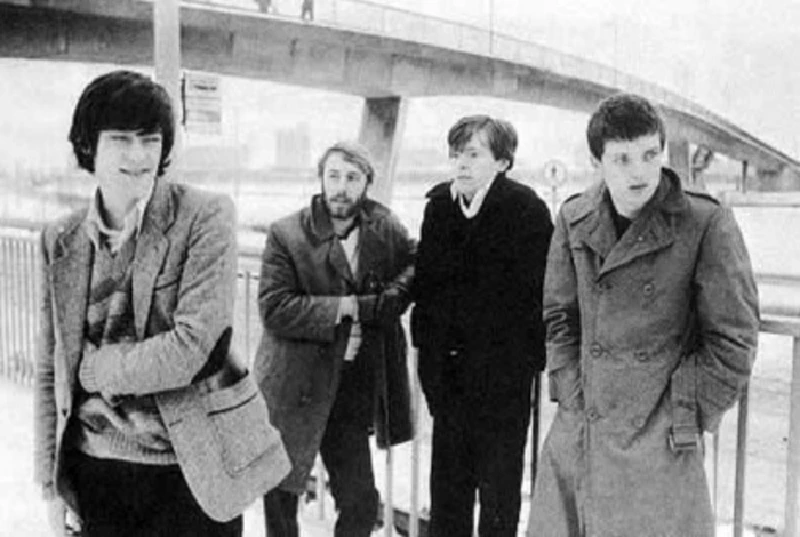
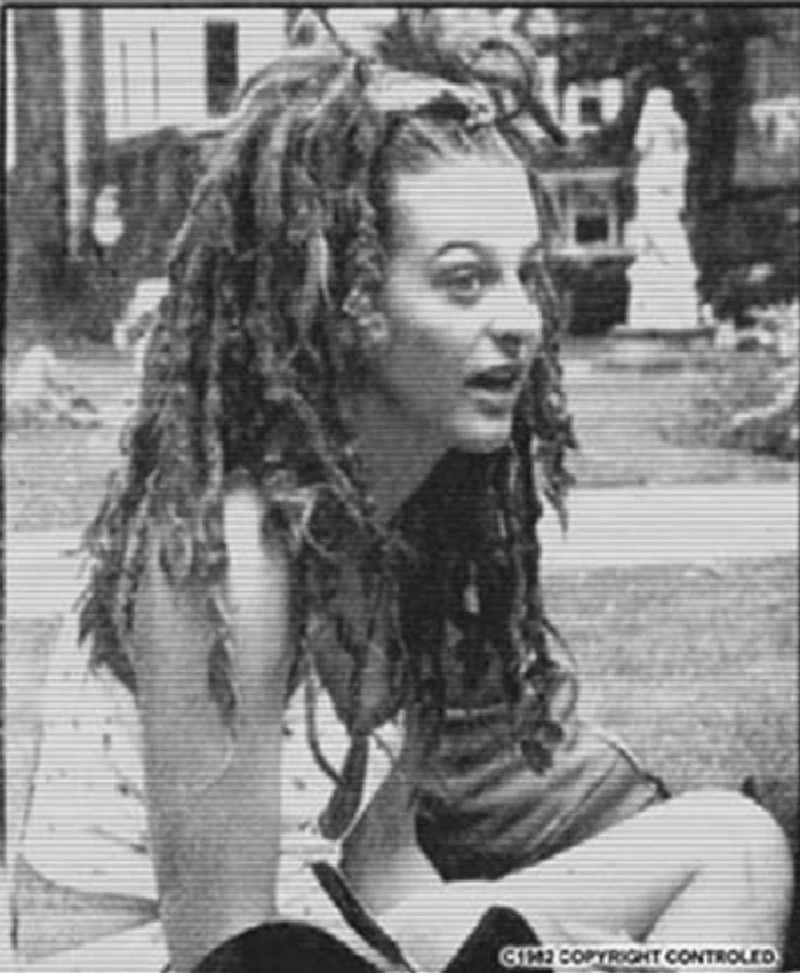
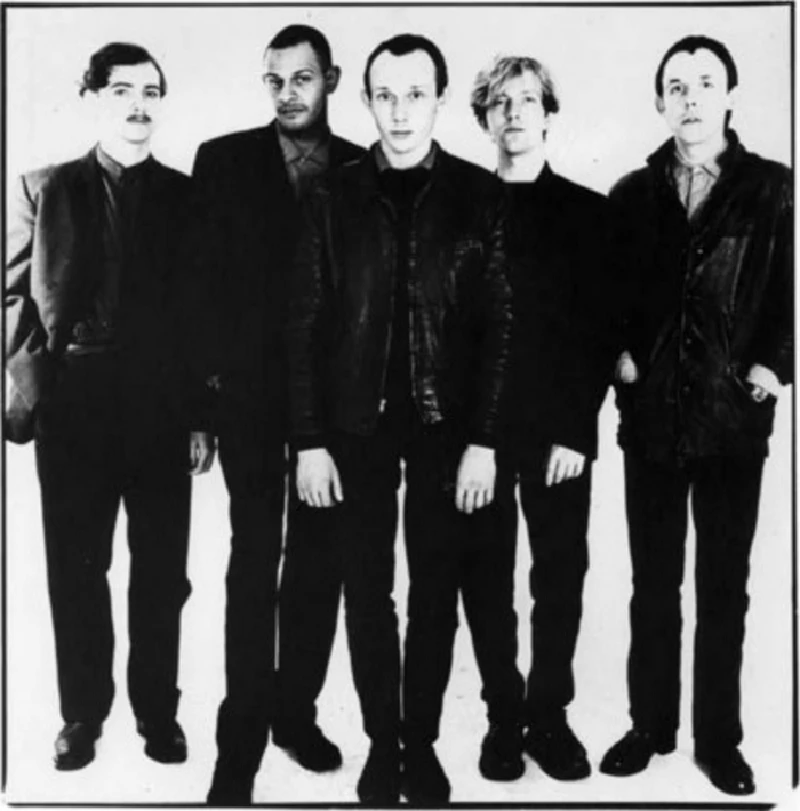
interviews |
|
Interview Part 2 (2009) |
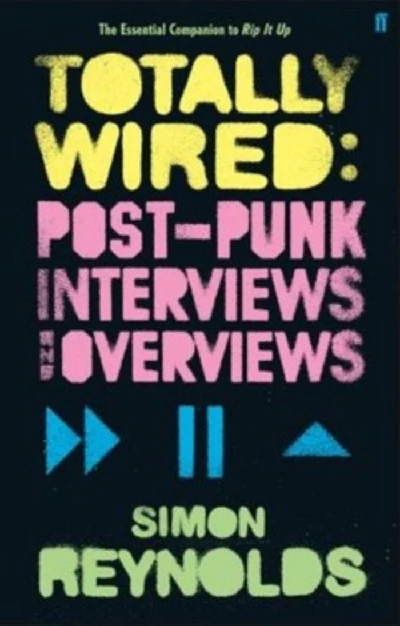
|
| while in the second part he talks about the changes in music journalism over recent years |
most viewed articles
current edition
Peter Doherty - Blackheath Halls, Blackheath and Palace Halls, Watford, 18/3/2025 and 21/3/2025Armory Show - Interview with Richard Jobson
Liz Mitchell - Interview
Deb Googe and Cara Tivey - Interview
Lauren Mayberry - Photoscapes
Max Bianco and the BlueHearts - Troubadour, London, 29/3/2025
Maarten Schiethart - Vinyl Stories
Clive Langer - Interview
Sukie Smith - Interview
Kim Wilde - Photoscapes
previous editions
Heavenly - P.U.N.K. Girl EPBoomtown Rats - Ten Songs That Made Me Love....
Trudie Myerscough-Harris - Interview
Doris Brendel - Interview
Beautiful South - Ten Songs That Made Me Love...
Kay Russell - Interview with Kay Russell
Dwina Gibb - Interview
Pulp - Ten Songs That Made Me Love...
Barrie Barlow - Interview
Sound - Interview with Bi Marshall Part 1
most viewed reviews
current edition
Davey Woodward - Mumbo in the JumboNigel Stonier - Wolf Notes
Wings - Venus and Mars
Only Child - Holy Ghosts
Kate Daisy Grant and Nick Pynn - Songs For The Trees
Neil Campbell - The Turnaround
Philip Jeays - Victoria
Darkness - Dreams On Toast
Suzanne Vega - Flying With Angels
Charles Ellsworth - Cosmic Cannon Fodder
Pennyblackmusic Regular Contributors
Adrian Janes
Amanda J. Window
Andrew Twambley
Anthony Dhanendran
Benjamin Howarth
Cila Warncke
Daniel Cressey
Darren Aston
Dastardly
Dave Goodwin
Denzil Watson
Dominic B. Simpson
Eoghan Lyng
Fiona Hutchings
Harry Sherriff
Helen Tipping
Jamie Rowland
John Clarkson
Julie Cruickshank
Kimberly Bright
Lisa Torem
Maarten Schiethart